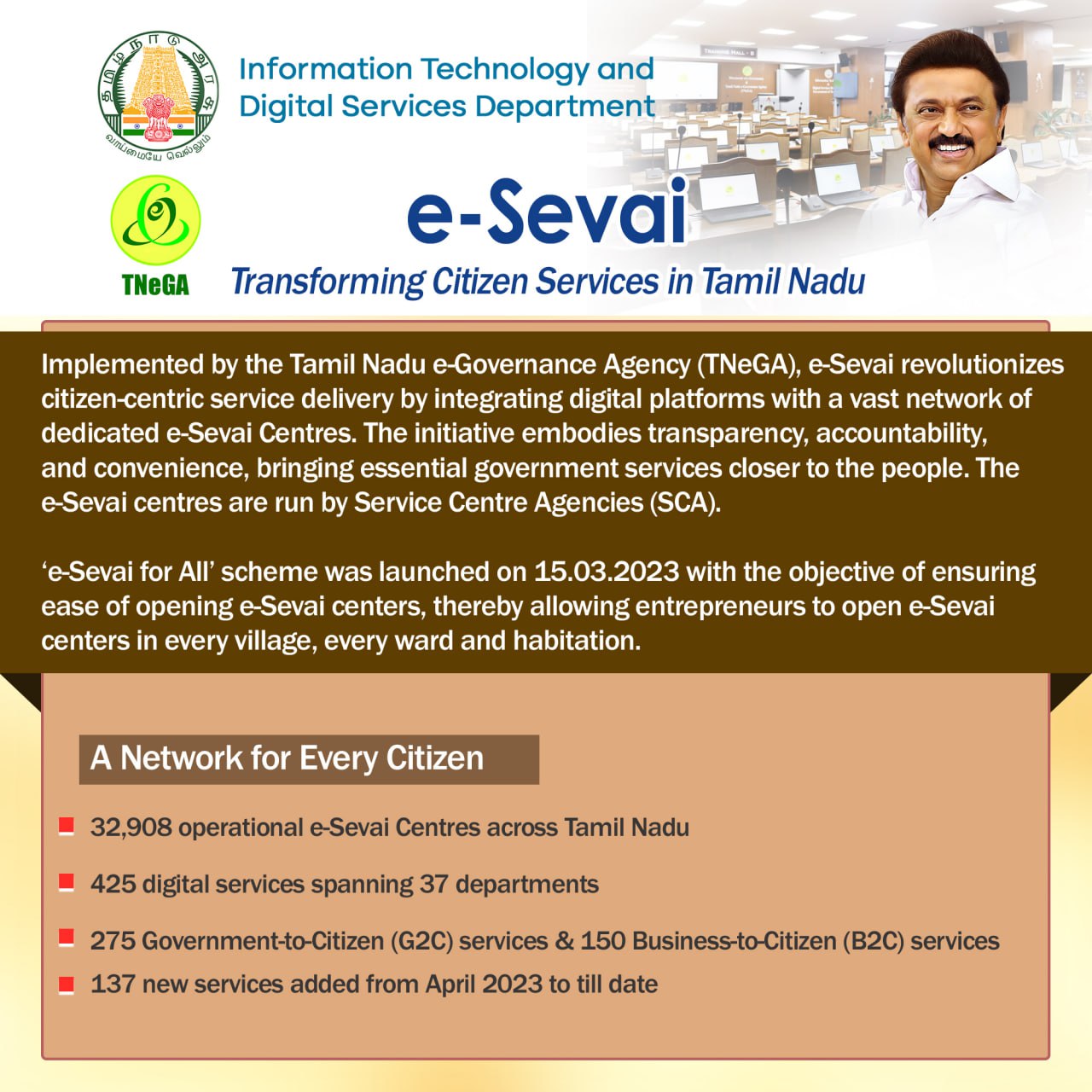TN Doorstep Delivery Of Government Services sees major rollout under ‘Ungaludan Stalin’ initiative
TN Doorstep Delivery Of Government Services kicks off today as Chief Minister M.K. Stalin launches the fourth phase of the government’s flagship outreach programme in Cuddalore. Named Ungaludan Stalin (Stalin With You), this initiative promises to bring over 40 government services straight to people’s homes across Tamil Nadu, aiming to ease public access and cut down on time-consuming visits to government offices.
This phase is not a standalone effort but part of a broader strategy that’s evolved over three previous versions. Officials, including Additional Chief Secretary P. Amudha, have clarified that this is a governance initiative grounded in public feedback and performance tracking not a last-minute pre-election stunt.
As part of the campaign, 10,000 special camps will be held between July 15 and November across urban and rural areas. The services cover 15 departments, targeting everything from patta name transfers, ration card changes, and EB name corrections to health insurance enrollment, SME loans, and applications for women’s financial aid who missed earlier windows.
TN Doorstep Delivery Of Government Services Gets Major Boost in 2025
The TN Doorstep Delivery Of Government Services plan includes 6,232 rural and 3,768 urban camps, spread across every district. These camps are structured to reduce the burden of travel on people, especially those in remote areas with limited access to taluk offices or digital platforms. Many of the services are also available online, but officials acknowledge that physical outreach remains essential for those with limited digital access or awareness.

To ensure effectiveness, door-to-door campaigns are underway to inform households about their camp dates. Volunteers are actively mapping neighborhoods, ensuring that no eligible citizen is left out. This extra mile effort reflects a strong commitment to bridging gaps between public demand and administrative access.
Feedback from earlier versions of this initiative helped fine-tune the new rollout. According to Ms. Amudha, a 95% satisfaction rate has been recorded in service delivery, debunking common complaints that earlier efforts ended with nothing more than a confirmation SMS. She acknowledged that certain budget-sensitive schemes may experience slight delays if funds aren’t immediately available, but regular services continue to be delivered efficiently.
A standout feature of this initiative is its structured tracking system and feedback loop. Data from each camp is logged, responses are monitored, and corrective measures are implemented quickly. This helps reduce the typical bureaucratic lag that many people experience when dealing with public departments.
In urban hubs like Chennai, Tiruppur, and Madurai, camps are being stationed in densely populated localities to maximize coverage. In villages, local panchayat offices and schools are being converted into service points for the duration of the program.
How TN Doorstep Delivery Of Government Services Will Reach Every Household
The government is also using mobile vans in difficult-to-reach regions, ensuring inclusivity even in hilly or isolated zones. These mobile units are equipped with basic internet access, staff support, and forms needed to process various requests.
Interestingly, TN Doorstep Delivery Of Government Services isn’t just a bureaucratic win—it also carries political weight. While the ruling DMK positions it as a public-first reform model, opposition voices like AIADMK’s Edappadi K. Palaniswami argue it has delivered little impact over the years. However, given the number of services, the spread of the camps, and the strong administrative backing, this phase appears more robust and ambitious than ever before. Also Read: AIADMK-BJP Alliance Drama: Will EPS’s Bold Stand Reshape Tamil Nadu Politics in 2026?

Though critics may point out timing concerns, especially with elections approaching, the sheer scale and execution model of this outreach programme set it apart. The ability to adapt from previous mistakes, backed by detailed ground-level data and citizen tracking, indicates that this is more than just surface-level campaigning.
With camps already beginning in districts like Cuddalore, Tiruvannamalai, and Thanjavur, the coming weeks will reveal how smoothly the TN government can manage its most ambitious doorstep delivery system yet.
Conclusion:
The TN Doorstep Delivery Of Government Services is not just another scheme it reflects a long-term shift toward responsive, on-ground governance. If implemented successfully, it could serve as a model for public service delivery in other states too.

